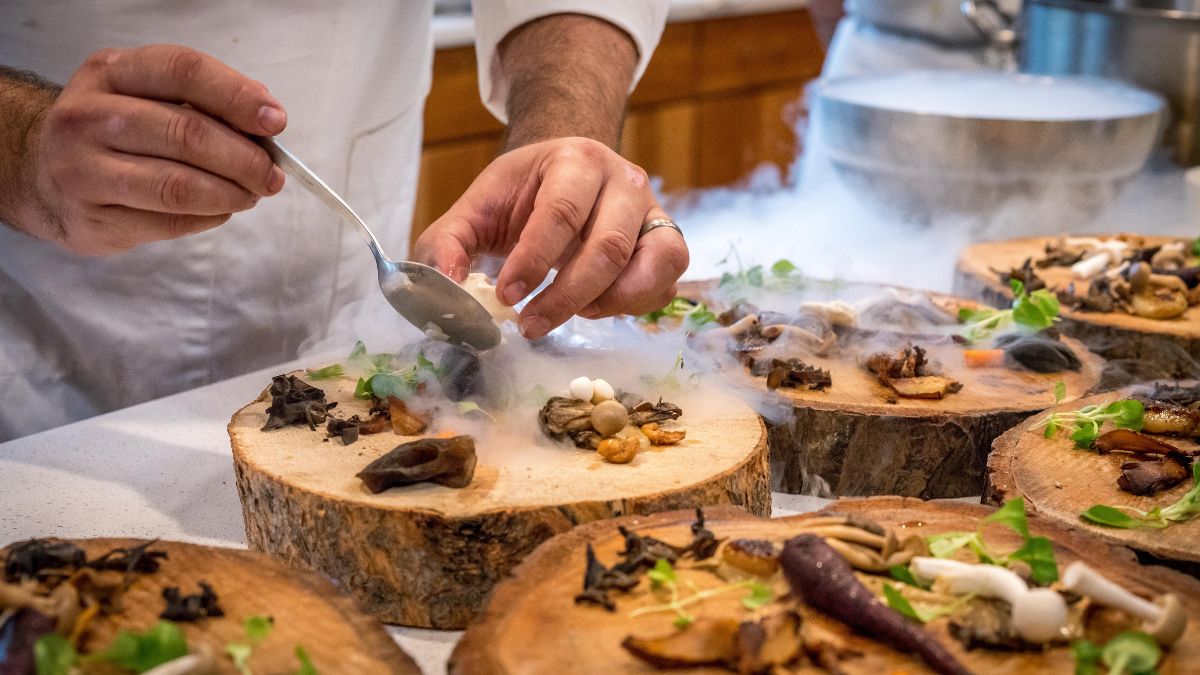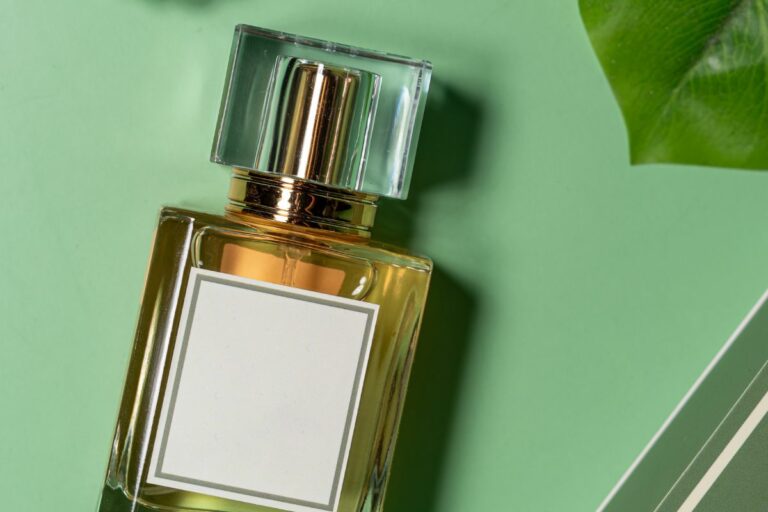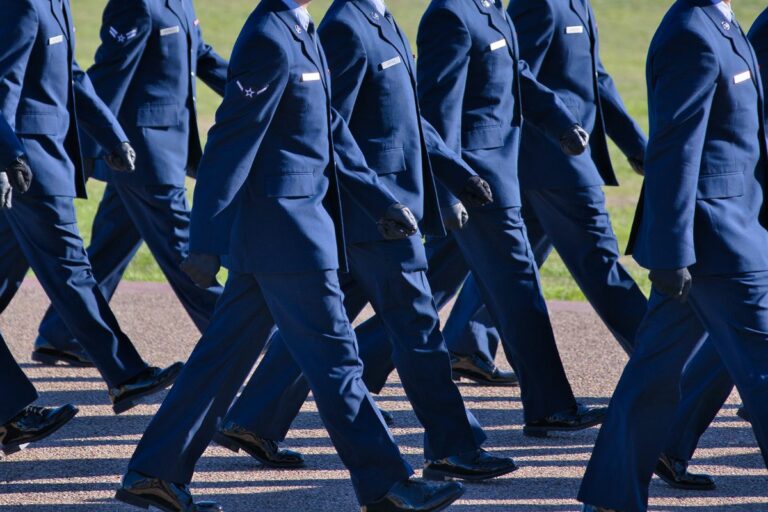Can You Wear Perfume When Working With Food

Food employees have to follow strict guidelines to ensure the food they’re serving or preparing is not contaminated or potentially harmful in any sort of way. It includes things like washing hands, wearing protective clothing, and not chewing gum. But can you wear perfume?
In general, it’s recommended that food handlers don’t use perfume or use light scents that aren’t going to interfere with the flavor of the food that is being served or prepared. Additionally, no perfume should be applied to hands and wrists to avoid getting it on the food.
There are several official guidelines and regulations on the personal hygiene of food employees, but perfume isn’t explicitly mentioned. If you want to know the nuisance behind wearing perfume when working with food and some of the things you should be aware of, this article is just for you.
In this article..
Regulations On Perfume When Working With Food
It varies from country to country, but in the U.S there are several institutions providing guidelines for safely working with food. Such guidelines always concern personal hygiene and sometimes limit wearing perfume.
The Safe Quality Food (SQF) Program
It’s overlooked by The Food Industry Association (FMI) and is a standard of quality that is followed by most businesses in the food sector.
In the General Guidance document, we can find several guidelines that can be seen to restrict staff from wearing perfume. For example, in Module 12: Good Distribution Practices for Storage and Distribution of Food Products it’s written that:
“12.3.3.1 Clothing worn by staff shall be maintained, stored, laundered and worn so as not to present a contamination risk to the product.
12.3.3.2 Clothing worn by staff engaged in handling food shall be maintained, stored, laundered and worn so as not to present a contamination risk to products.”
Aroma compounds that make perfumes smell good are tiny chemical molecules that are freely floating all over the place. As a result, if you’re a staff member who’s working with food, you might be breaking this guideline by wearing perfume.
It’s because even if you’re applying perfume straight on your body, some aroma compounds will definitely fall and stick onto your clothing. It could be considered a contamination risk to products. That being said, most scents aren’t likely to present a contamination risk
Good Manufacturing Practices (GMPs)
Additionally, most countries follow GMPs that guarantee high-quality production of cosmetics, food and beverages, pharmaceuticals, dietary supplements, and medical devices.
In the U.S, GMPs are enforced by Food and Drug Administration (FDA).
In Subpart B: § 117.10 Personnel we can find the methods for maintaining cleanliness which include relevant information about wearing perfume when working with food:
”Taking any other necessary precautions to protect against allergen cross-contact and against contamination of food, food-contact surfaces, or food-packaging materials with microorganisms or foreign substances (including perspiration, hair, cosmetics, tobacco, chemicals, and medicines applied to the skin).”
As a result, it’s advised against wearing it when working with food because it’s easy to contaminate the food with aroma compounds. It can lead to a plethora of different problems and undesired results.
Concerns About Wearing Perfume When Working With Food
There are a few things you should be aware of before wearing perfume when working with food. First of all, perfume can transfer to food and alter its taste and smell. Even if you only use a small amount of perfume, small aroma compounds contaminating the food can alter the flavor and ruin the food.
Second, many perfumes include ingredients that can cause allergic reactions, and you might put the health of customers in danger. Finally, perfume can be distracting, and losing your focus when working with food is the last thing you want.
Recommended Perfume When Working With Food
If you’ve decided to wear perfume when working with food, we recommend you choose something with low projection and sillage. It means that perfume stays close to your skin and doesn’t remain in the area where you aren’t present anymore. Finally, avoid perfume with gourmand notes, which include notes like chocolate, vanilla, and other food-related notes.
Here’s a fragrance we recommend for women working with food:
This fragrance was launched in 2001 and created by master perfumer Olivier Cresp, who carefully combined floral and fruity aromas to result in a light and pleasant scent of summer.
It has top notes of Sicilian lemon, apple, cedar, and bellflower, middle notes of bamboo, jasmine, and white rose, and base notes of cedar, musk, and amber.
You can get 50ml (1.6 Fl. Oz.) of Light Blue for about $74.
Here’s a fragrance we recommend for men working with food:
This Eau de Parfum captures the essence of having a refreshing shower and features top notes of lemon, mandarin, orange, middle notes of lily of the valley, orange blossom, and jasmine, and base notes of musk and sheer woods.
It’s a simple, yet refreshing fragrance that isn’t likely to offend anyone around you, making it great when working with food.
You can get 30ml (1 Fl. Oz.) for about $44 or 60ml (2 Fl. Oz.) for about $74.
Frequently Asked Questions (FAQ)
(Q): How to Properly Wear Perfume?
(A): You have to apply perfume on what’s called pulse points, which are areas with blood vessels closest to the skin surface. The best pulse points for perfume when working with food are your nape, neck, and behind the ears. Then, wash the area and apply perfume from a distance of 4-6 inches (10-15cm). Keep in mind that a single spray is often enough.
(Q): How to Minimize the Risk of Contaminating the Food with Perfume?
(A): Make sure you don’t apply perfume onto your hands or wrists, wash your hands after applying it, and apply it before coming to your work. These things will help you avoid getting aroma compounds on the food and avoid possible negative outcomes of wearing perfume.
Final Words
Wearing perfume when working with food is allowed, but comes with many risks and things you should consider before doing it. If you want to wear perfume, choose a perfume with a light scent, low projection, and sillage, which will reduce the risk of contaminating the food with aroma compounds.









